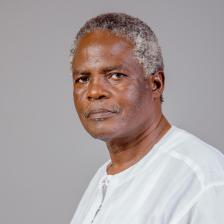
How Africa’s Resource-Rich Countries and Partners Can Turn the Nairobi Declaration into Concrete Progress
The inaugural Africa Climate Summit (ACS), which took place earlier this month, marked a significant milestone in the continent’s climate dialogue. Bringing together 18 heads of state, experts from various sectors, civil society representatives, global climate leaders and development partners, the summit resulted in the Nairobi Declaration on Climate Change and Call to Action.
This declaration committed participating governments to accelerating climate-positive growth, strengthening coordination across the continent, and mainstreaming adaptation into development policies. It called upon Africa’s partners to meet their climate finance commitments and reduce bottlenecks that have prevented African countries from accessing funds to deploy renewable energy and other necessary technologies.
This week the baton passed from Nairobi to New York. The outcomes and lessons drawn from ACS hold significant relevance for delegates to the UN Climate Ambition Summit convened by U.N. Secretary-General António Guterres. In the Nairobi Declaration Africa’s leaders illuminate critical pathways toward sustainable climate action, offering valuable insights that can inform and inspire the discussions, commitments and decisions in New York.
For Africa’s resource-rich nations, heavily dependent on mineral and fossil fuel extraction, the Nairobi summit presented an opportunity to explore a transition toward cleaner and sustainable energy sources.
However, skepticism prevailed among civil society activists and representatives of African regional institutions who felt that they had heard similar promises before from African governments and the international donor community. In the lead-up to the summit, NRGI suggested five areas of focus for resource-rich countries. Reflecting on the summit’s outcomes, here we highlight three steps that African governments, regional institutions, activists and international donors can take to translate the Nairobi Declaration into impactful measures for resource-rich African countries, in anticipation of December’s COP28 and beyond.
1. Open up space for public dialogue
The Nairobi Declaration recognizes the dual challenge faced by African countries, including resource-rich ones: the need to accelerate climate mitigation and adaptation while promoting economic development and energy access. This requires mechanisms for public involvement in just transition planning and an inclusive, people-centered vision for the transition that prioritizes fair distribution of benefits and costs; protects vulnerable communities; promotes skill development, decent jobs, equity and social inclusion; and ensures active public engagement. Unfortunately, in many resource-rich countries, decision-making around energy transition planning has remained confined to the corridors of power walked by policy makers and political elites.
The Nairobi summit regrettably failed to significantly advance public dialogue on energy transition. Despite calls from African activists for meaningful representation of civil society and communities on the front lines of climate impact, the summit was dominated by high-level government officials and investors, with limited space for discussions on the human impact of climate change and the governance of the transition from a people-centered perspective.
Moving forward, African governments must establish open consultative mechanisms for public engagement in understanding energy transition opportunities and challenges. Failure to do so could allow special interests to dominate policy processes and deepen citizens’ distrust.
International institutions, including the African Union and multilateral development banks, as well as donors, must prioritize governance and public participation in future milestone meetings. They should ensure adequate funding for national and local participatory processes in advance of such events and as part of national transition planning. Democratizing the energy transition agenda, aligning it with people’s aspirations, and securing broad-based support are imperative to navigate the complexities and build a sustainable and equitable future.
To accelerate global capital mobilization effectively and address the crises of climate change and development, decisive action on inclusive and effective international tax cooperation is essential. For example, United Nations Resolution A/C.2/77/L.11/REV.1 aims to reduce Africa’s annual loss of $27 billion in corporate tax revenue by at least 50 percent by 2030 and 75 percent by 2050 through curbing profit shifting.
2. Get specific
While the Nairobi Declaration touches on key drivers of change for resource-rich countries, it lacks specificity. Notably, the signatories omitted from the final version references to accelerating the development and value addition of Africa’s green transition minerals. While the declaration vaguely alludes to this goal, calling for more energy-intensive processing of Africa’s raw materials to take place on the continent, it falls short of outlining specific goals related to transition minerals and commitments from African governments and institutions. The continent’s governments must cooperate and coordinate to develop economically viable cross-border value chains.
The African Union’s Green Minerals Strategy, presented at the summit, can serve as a crucial tool for aligning government policies. Nevertheless, African officials must commit to specific actions to harmonize policies, promote cross-border collaboration, develop costed plans for value addition, and establish governance priorities. This push requires coordination among regional institutions and individual governments, emphasizing good governance, transparency, and public dialogue to avoid repeating the mistakes of past resource booms. Development partners must support African governments and civil society in strengthening policies, enforcement, and public oversight to prevent a one-sided geopolitical game.
Another central theme at the summit was climate finance, emphasized in the declaration’s calls for global capital mobilization, honoring unmet global finance commitments, and reducing the risks and costs of green investments for African governments. While donor nations and multilateral organizations present pledged approximately USD 26 billion at the summit, these promises must translate into tangible support to realize greenhouse gas reductions in Africa. Resource-rich countries must closely examine the intersection of public revenues, investment plans and transition ambitions, developing clear agendas to mobilize and use finance strategically. People-centered planning processes are crucial to building national consensus and leveraging external funding opportunities. Just energy transition partnerships (JETPs) can play a pivotal role in this process, exemplified by the JETP in Senegal, which can serve as a test case for scaling up energy access and renewable deployment. Achieving this will require governments’ commitment to transparency and public engagement to ensure that JETPs serve public rather than vested interests.
International efforts to combat illicit financial flows and boost domestic resource mobilization—such as the Addis Ababa agenda and the UN resolution on international tax cooperation—can play an important role in leveling the playing field and boosting African governments’ efforts to finance a just transition. But multi-national companies must vigorously implement them, and bolstering government enforcement capacity is essential. Policies requiring company reporting on their tax payments on a country-by-country basis and publication of beneficial ownership information are also needed. And the demand for transition minerals necessitates accelerated steps toward operationalizing the automatic exchange of tax information.
3. Get organized
African leaders can navigate the energy transition successfully, establish sustainable and resilient energy systems, and contribute to a more environmentally friendly and prosperous future, in line with the African Union’s Agenda 2063. However, achieving this vision will require the continent’s political leadership to organize better and develop clear agendas.
It also requires the involvement of citizens and civil society. To secure an equitable energy transition and to advance climate action, civil society organizations (CSOs) can:
- Invest in collaborative coalitions. Form coalitions that bring together organizations, activists, and individuals committed to advancing the energy transition agenda. Collaborate with experts in climate change, renewable energy, environmental justice, and related fields to create a united front that can effectively engage and exert pressure on regional and international authorities to expand consultation and decision-making spaces for diverse representation.
- Increase awareness and skills. Recognize the varying levels of awareness and understanding of the impact of a just energy transition among different groups. Launch a comprehensive awareness-raising, skills enhancement, and advocacy campaign to educate stakeholders about the implications of the transition in Africa. Invest in mobilizing grassroots support through community engagement to ensure local communities are informed advocates for clean energy solutions, effectively influencing decision-makers.
- Participate and engage decision makers. Establish effective communication channels with government policymakers, regional institutions, and other stakeholders involved in climate negotiations and energy policy. Advocate for inclusivity in decision-making processes and civil society participation and representatives in official delegations and advisory committees.
- Shape the narrative. Invest in research and development to generate evidence-based policy recommendations that support the energy transition agenda from an African perspective, considering regional nuances. Collaborate with experts in energy, economics and environmental science to create robust proposals tailored to the African context.
- Deepen international collaboration. Form partnerships with international organizations, NGOs and climate-focused institutions that can provide resources, expertise and global visibility. Collaborating with international allies helps to amplify messages and drive support.
- Monitor progress and demand accountability. Continuously monitor government and corporate commitments to the energy transition agenda. Use the Nairobi Declaration as a foundation to hold governments and international institutions accountable. Recognize that energy transition and climate advocacy are long-term efforts and be prepared to adapt strategies as circumstances evolve.
Turning the Nairobi Declaration into concrete progress for Africa’s resource-rich countries demands a holistic approach. It requires public dialogue, participation, representation with key actors and civil society organizing to actively engage in shaping the transition. Governments, international partners and corporations must collaborate to ensure that the energy transition benefits all and contributes to a sustainable, equitable future for Africa.
Authors

Nafi Chinery
Africa Director

Patrick Heller
Chief Program Officer

Silas Olan'g
Africa Energy Transition Advisor
